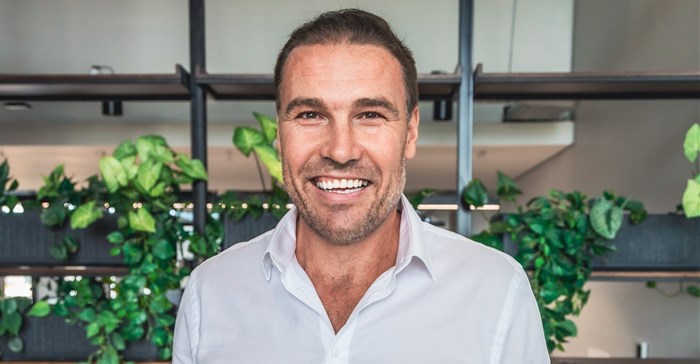Rainmaker Marketing, a global property and lifestyle marketing agency, officially released its second Property Market Report on Thursday, 4 April 2024, which focuses on the dynamic Western Cape.

Source: Supplied. Stefan Botha, director of Rainmaker Marketing.
This comprehensive report specifically delves into the fast growing real-estate landscape in Somerset West and Stellenbosch, offering invaluable insights into semigration patterns, regional economic outlook, building plans activity, and a holistic take on the property market in the Western Cape.
Semigration and relocation within South Africa
“It is evident that the Western Cape enjoys the lion’s share of semigration and as a result, has to cater to the shift in the market’s needs.
"The province has driven international and local investment and has set the standard of living in South Africa through its excellent service delivery, lower unemployment rates, mushrooming business hubs, medical and educational institutional offerings and forward approach to energy efficiencies,” says Stefan Botha, director at Rainmaker Marketing.
The Rainmaker Marketing collated report highlights the allure of the Western Cape, with semigration trends showing that those moving into the province has increased from 31% in 2020 to 46% in 2023.
Factors such as quality of living, good governance, security, and substantial infrastructure investment are what seem to be driving individuals, families and businesses to relocate to the region. This shift in population dynamics presents both challenges and opportunities for the local economy, shaping the region’s growth trajectory.
The Western Cape’s 10-year growth plan
The Western Cape’s economy continues to flourish, with projections indicating a 1.9% expansion in 2024. Notably, the tourism sector experiences significant growth, contributing approximately R1.9bn in direct tourism spend.
Strategic investments in infrastructure include the comprehensive R120bn investment plan over the next decade, which is expected to drive sustained growth. Initiatives such as upgrading wastewater facilities, investing in urban mobility projects, and increasing water supply demonstrate a forward-thinking approach to sustainable development.
Building plans activity
Building activities in the Western Cape surpass national averages, reflecting sustained development and investment.
According to StatsSA, between January and November 2023, building plans passed in the Western Cape amounted to R30bn, exceeding the combined total of several other provinces. Additionally, completed buildings in the Western Cape reached R25bn, the highest in South Africa at 40%, outperforming Gauteng.
“For every five buildings completed in South Africa between 2022 and 2023, two of these are within the Western Cape,” noted Botha.
Stellenbosch and Somerset West
The Western Cape stands out for its value and activity in the property market. “By considering factors like demographics, infrastructure, amenities, and economic indicators - we have identified Somerset West and Stellenbosch as two high-potential growth areas,” explains Brenda Padayachee, head of Market Research at Rainmaker Marketing.
According to the report, the adult population within these towns, is growing significantly with 53 new families moving into the area monthly.
Buyer activity in Somerset West (54%) and Stellenbosch (45%) is notably higher among those aged 50 to 65+, drawn by factors like quality healthcare facilities, estate offerings and suitability for mature living. In terms of housing stock, Stellenbosch has seen an 18% increase while Somerset West saw a more modest 6% rise in new stock since 2021.
“Properties within estates in Stellenbosch command higher prices, with sectional-title units and freehold homes seeing premiums of 12% and 35%, respectively, compared to properties outside estates. Somerset West consistently outperforms Stellenbosch in total property transactions, but Stellenbosch shows consistent growth in both volume and value of sales. The average value per sale in Somerset West saw a 17% increase in 2023,” adds Padayachee.
The Rainmaker Marketing Western Cape Property Market Report confirms that sectional-title prices per square metre have risen consistently across all towns, with Stellenbosch commanding a premium of 50% to 62% over Somerset West, reflecting unique market dynamics.
Predictions for the year ahead
“Looking forward, we see promising shifts in market sentiment on the horizon, particularly with the anticipated decrease in interest rates expected in the third quarter of 2024, which may signify the peak of the interest-rate cycle and usher in a period of optimism, especially in regions such as Stellenbosch and Somerset West, where heightened sales volumes are projected.
Additionally, the planned R7.7bn expansion of the Cape Winelands Airport projected to open in 2027 and broader infrastructure investments in the Western Cape, supported by an estimated R120bn investment by the City of Cape Town, are poised to catalyse significant economic growth, connectivity improvements, and enhanced desirability.
Property-development trends indicate sustained demand for sectional-title properties within estates, mixed-use developments, and increasing integration of technology, all underpinned by a growing emphasis on sustainability.
Features like back-up power and solar-ready units are becoming standard, alongside a greater focus on energy-efficient systems and water-saving measures. The rise of green bonds offered by banks further highlights the sector's commitment to sustainability, reshaping the real-estate landscape towards more environmentally conscious practices,” concludes Botha.
































